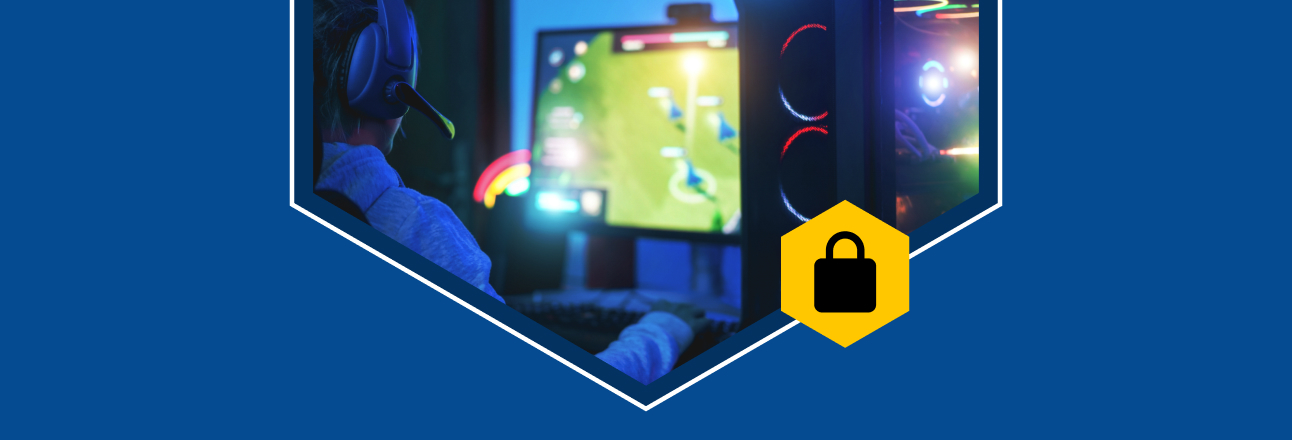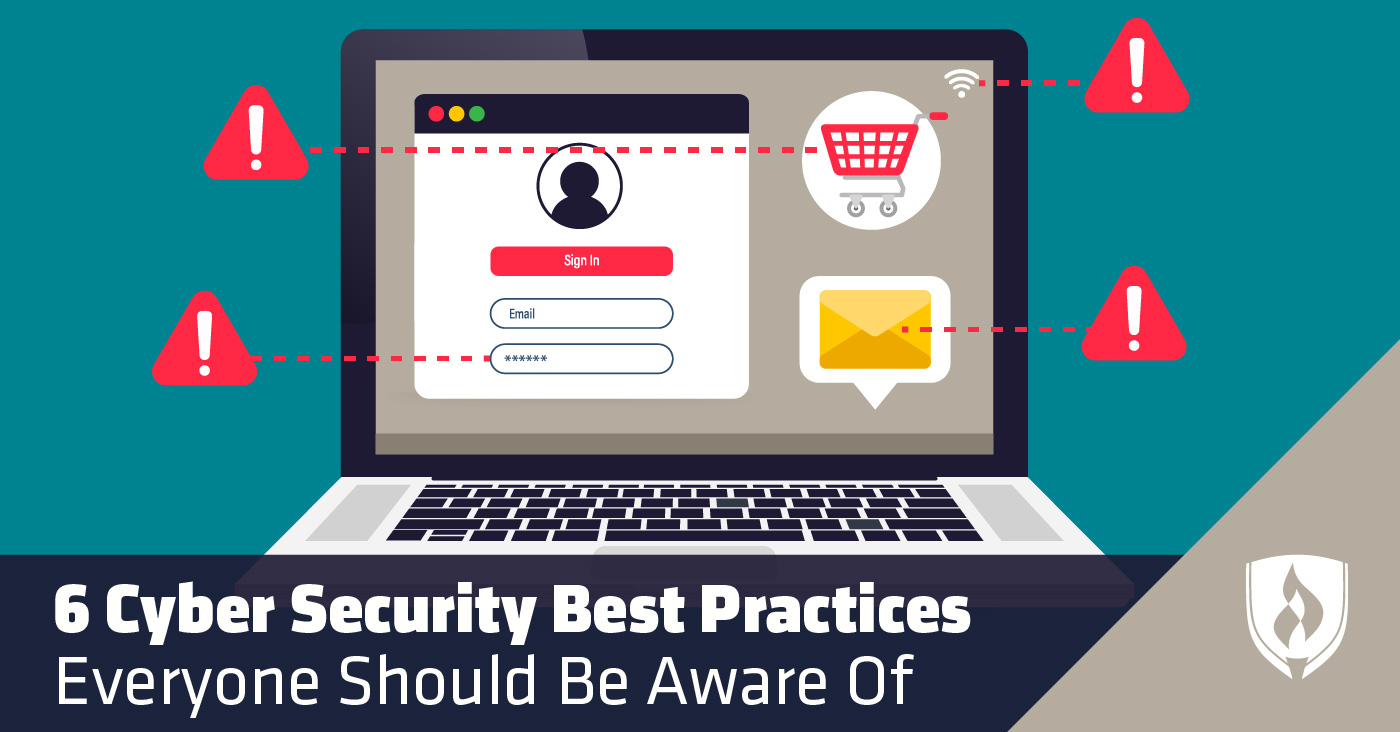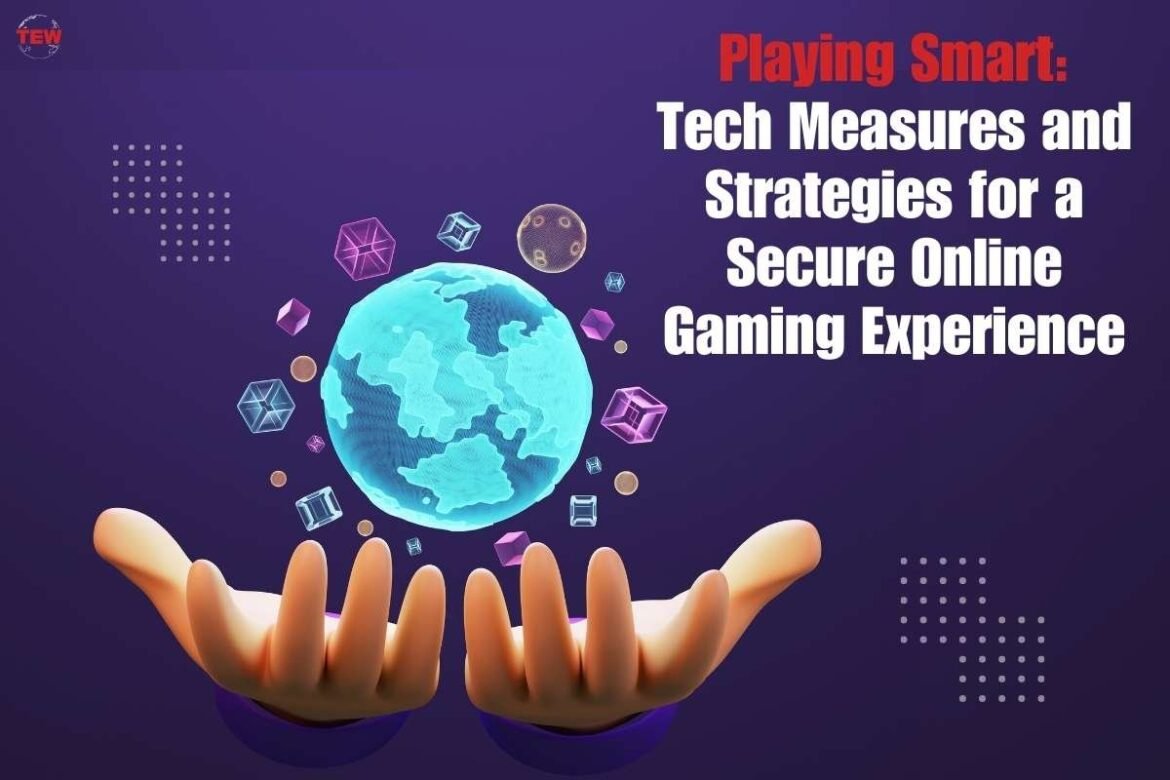
Understanding Online Gaming Security
Overview of Online Gaming Security
In today’s digital world, online gaming has soared in popularity, becoming a go-to pastime for millions. However, with such growth comes the need for robust online gaming security. It’s crucial for players to understand the potential risks associated with gaming so that they can protect themselves effectively.
Online gaming security involves a set of practices, technologies, and methods designed to safeguard players’ information and provide a safe gaming experience. This encompasses protecting personal data, financial information, and critical account details from unauthorized access or malicious attacks.
It’s akin to locking the door of your house after you’ve moved in—an often overlooked but vital step to ensure your safety. Just as you wouldn’t leave valuables out in the open, gamers must adopt security measures to keep their gaming experiences secure.
Common Threats in Online Gaming
Just as in any online environment, various threats lurk in the realm of online gaming. Understanding these threats is the first step towards protecting oneself. Here are some of the most common:
- Phishing Attacks: Gamers may receive fraudulent emails or messages attempting to trick them into revealing personal information. For example, a player might get a message claiming to be from their favorite game developer, urging them to log in via a provided link.
- Account Hacking: Weak passwords can make accounts irresistible targets for hackers who employ brute-force attacks or keyloggers. Imagine logging into your favorite game only to be met with a “wrong password” message when you’ve done everything right.
- Malware and Viruses: Downloading unofficial game mods or trainers can lead to malicious software infecting devices, ultimately compromising sensitive information.
- DDoS Attacks: Distributed Denial of Service attacks can disrupt service by overwhelming gaming servers, leading to frustrating downtime.
By being aware of these threats, gamers can take proactive steps to fortify their online security. Remember, it’s not just about playing games; it’s about ensuring safety and enjoyment in this digital playground.

Importance of Online Gaming Security
Protecting Personal Information
Continuing from the discussion about common threats, the significance of robust online gaming security cannot be overstated. One of the primary concerns is protecting personal information. Gamers often share information such as usernames, emails, and even personal preferences within games.
- Identity Theft Risks: With this vulnerability, identity thieves can exploit personal data for malicious purposes. Imagine logging into your favorite game and realizing your settings have changed, or worse, your account is used for spam!
- Social Engineering: Gamers may be targeted through social engineering tactics, tricking them into revealing private information. This underscores the need for vigilance.
Safeguarding Financial Data
Another crucial aspect is safeguarding financial data. Many players invest real money into buying games, upgrades, or in-game currencies. This financial activity creates an avenue for fraudsters to exploit.
- Secure Transactions: Always ensuring that payments are made through secure channels is essential. Look for SSL encryption and trusted payment methods to minimize risks.
- Monitoring Statements: It’s wise to regularly check bank statements for any unauthorized transactions, thus ensuring that your finances are in check.
Preventing Account Hacking
Lastly, preventing account hacking is vital for a seamless gaming experience. The emotional investment in games can be significant, so losing access can be devastating.
- Strong Passwords: Using complex and unique passwords is a simple yet effective way to deter hackers.
- Password Managers: Consider utilizing password managers to keep track of your gaming credentials safely.
- Regular Updates: Many game developers frequently update security protocols; staying informed can help avert crises.
By taking these measures seriously, gamers can reinforce their security posture significantly, allowing them to enjoy their gaming experiences without concern for their safety.

Best Practices for Securing Your Online Gaming Experience
Continuing from the importance of online gaming security, implementing best practices is paramount for protecting yourself while enjoying your favorite games. Here are some effective strategies to secure your gaming experience:
Strong Password Creation
First and foremost, let’s talk about passwords. Crafting strong, unique passwords for each gaming account is crucial.
- Length and Complexity: Aim for at least 12 characters, incorporating a mix of uppercase, lowercase, numbers, and special symbols.
- Password Examples: Instead of using simple passwords like “gamer123”, consider something like “G@meR!2023*SecuR3”.
A personal anecdote: once, a friend unsuccessfully attempted to secure his account with a weak password, only to find himself locked out after a hacking attempt. Don’t let this happen to you!
Two-Factor Authentication
Next up is Two-Factor Authentication (2FA). This feature adds an extra layer of security by requiring a second form of verification.
- Utilizing 2FA: Enable 2FA where possible, whether via SMS codes or authentication apps. This means that even if someone gets hold of your password, they still need another piece of information to access your account.
Keeping Game and Security Software Updated
Staying updated doesn’t just apply to games; it’s also about security software.
- Install Updates Promptly: Updates typically contain essential patches that fix security vulnerabilities. Your gaming experience can be more enjoyable and safer when everything runs smoothly.
Avoiding Suspicious Links and Downloads
While browsing the internet, be wary of suspicious links and downloads.
- Official Sources Only: Download games and updates only from official channels. Avoid third-party sites that may host harmful content, and always think twice before clicking on any unsolicited links.
Using Secure Wi-Fi Connections
Lastly, it’s crucial to maintain secure Wi-Fi connections while gaming.
- Secure Your Router: Ensure that your Wi-Fi network is protected by a strong password and encrypted with WPA3. Public Wi-Fi can be tempting, but without appropriate measures, it poses significant risks.
By following these best practices, gamers can significantly enhance their online gaming security, allowing for a more enjoyable and worry-free experience. Being proactive today can save a lot of grief tomorrow!

Recognizing and Reporting Suspicious Activity
Building on the best practices for online gaming security, it’s equally important to recognize and report suspicious activity as part of safeguarding your gaming environment. Awareness can empower players to act swiftly and protect themselves.
Signs of Potential Security Breaches
Identifying signs of potential security breaches is your first line of defense. Here are a few red flags to watch for:
- Unusual Account Activity: If you notice unfamiliar logins from different locations or your in-game inventory suddenly changes, it could be a sign that someone else has gained access to your account.
- Strange Messages: Receivers of unsolicited messages asking for personal information or urging you to click on questionable links should raise eyebrows immediately. Those could be phishing attempts.
- Unexpected Password Resets: If you receive a password reset email without initiating that action, it’s critical to act fast before a breach occurs. This could mean someone is trying to hijack your account.
A personal experience to share: a fellow gamer recently found themselves locked out of their account, only to discover someone had tried to change their email address. Recognizing that sign early could have saved a lot of frustration!
Steps to Report Security Incidents to Game Providers
Once you’ve recognized suspicious activity, timely reporting is crucial. Here’s how to do it:
- Contact Support: Most game providers have dedicated support teams. Look for a “Contact Us” or “Support” section on their website.
- Document Everything: Take screenshots and note down any details regarding suspicious activity. This documentation can be helpful for security teams to investigate the issue.
- Change Your Credentials: If you suspect your account may be compromised, change your password immediately and enable two-factor authentication if you haven’t already.
- Follow Up: Keep in touch to track the status of your report. Providers often appreciate when players remain vigilant.
By promptly recognizing and reporting suspicious activity, gamers can contribute to a safer online environment not just for themselves but for everyone in the gaming community. Taking these proactive measures can make all the difference!

Education and Awareness
Continuing from the importance of recognizing and reporting suspicious activity, education and awareness play a pivotal role in enhancing online gaming security. Knowledge is power, and in the fast-paced world of gaming, understanding the risks and preventive measures can make a significant difference.
Promoting Security Awareness Among Gamers
Firstly, promoting security awareness among gamers is essential. Just like any other community, gamers need to share tips and experiences regarding online security.
- Community Engagement: Attend gaming workshops, webinars, or forums focused on digital safety. Engaging with community members can spark valuable discussions and knowledge sharing.
- In-Game Awareness: Many games are now incorporating security tips directly in their tutorials or main menus. Notifications about suspicious activities can be a great way to keep players alert.
For instance, one time while running a community gaming event, a participant shared a story about how a simple conversation led to changing their security practices, highlighting how community support can bolster awareness.
Resources for Learning More About Online Gaming Security
Fortunately, numerous resources are available for gamers eager to enhance their understanding of online security:
- Official Game Developer Websites: Many game developers provide extensive resources on the best cyber practices to follow while playing their games.
- Security Blogs and Forums: Websites like TECHFACK offer insightful articles on mastering online gaming security, featuring best practices and strategies.
- Online Courses: Platforms like Coursera or Udemy offer courses on cybersecurity that can be beneficial for gamers wishing to deepen their understanding of digital safety.
- YouTube Tutorials: Visual learners can benefit from tutorial videos that outline security measures step-by-step, making it easier to implement changes.
By fostering an environment of education and awareness, gamers can elevate their security practices, making the gaming world a safer place for everyone. When players stick together to share knowledge, they strengthen their defenses against potential threats. Let’s keep the gaming community strong and secure!

Conclusion and Recap
As we wrap up our discussion on online gaming security, it’s crucial to recap the key points we’ve explored. Understanding the importance of online security ensures that gamers can enjoy their experiences without the looming fear of cyber threats.
Summary of Best Practices
Throughout our journey, we’ve identified several essential best practices for securing your online gaming experience:
- Strong Password Creation: Use complex, unique passwords for your gaming accounts.
- Two-Factor Authentication: Enable this feature whenever available to add an extra layer of security.
- Software Updates: Keep both your games and security software up to date to mitigate risks.
- Stay Cautious Online: Avoid suspicious links and downloads, sticking only to verified sources.
- Secure Wi-Fi Connections: Always use protected, trusted networks when gaming.
These strategies not only protect your personal and financial information but also help prevent unwanted interruptions to your gaming sessions.
Final Recommendations for Enhanced Online Gaming Security
To enhance your online gaming security, here are some final recommendations:
- Stay Informed: Continuously educate yourself about the latest security threats and trends.
- Foster Community Support: Engage with fellow gamers. Share experiences and tips to create a more secure gaming environment.
- Report and Respond: Stay vigilant. Always recognize and report suspicious activity to your game provider promptly.
In closing, mastering online gaming security is a shared responsibility, and proactive engagement is key. By following these practices, gamers can create a fun, safe, and secure environment for themselves and others. Remember, when you prioritize security, you not only protect yourself but also contribute to a healthier gaming community. Happy gaming, and stay safe out there!

